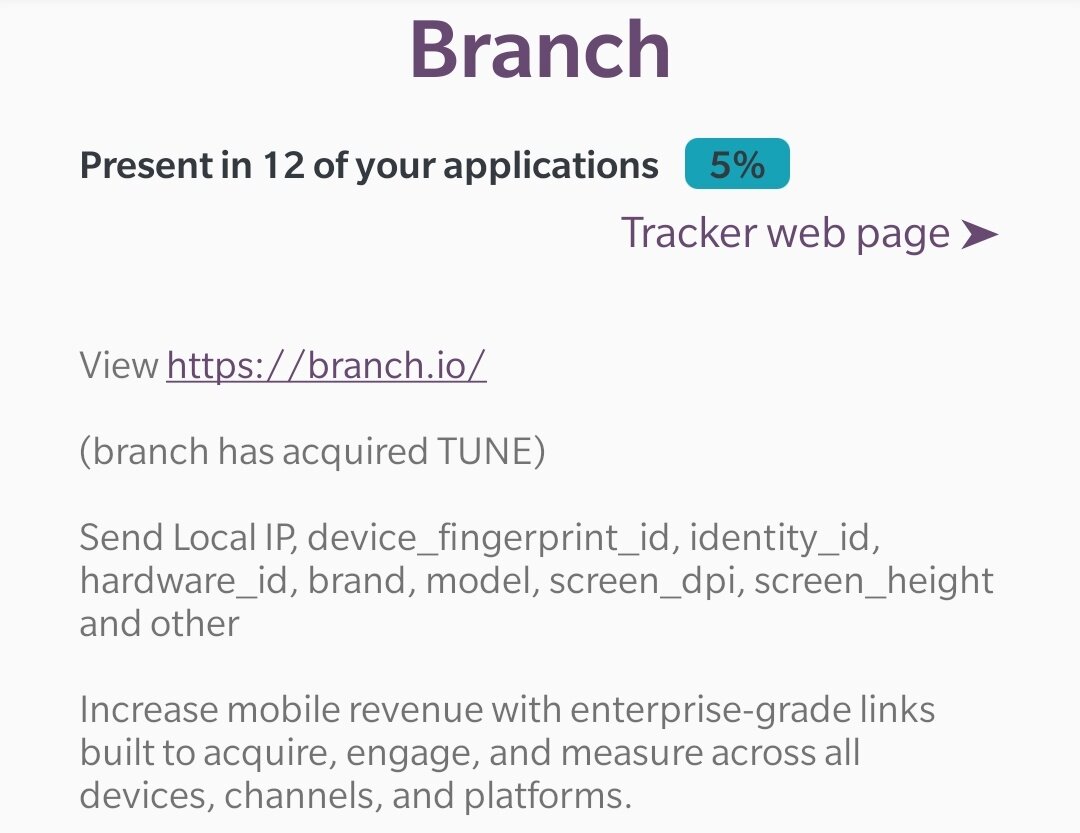Companies large and small are always looking for new and creative ways to violate your privacy.
One popular tool of the trade is to embed trackers and ask for more permissions than necessary to "steal" user data. The question is, how do you know what trackers are embedded in your installed Android apps? This is were The Exodus Privacy Report tool comes in.
Here is a sample report for the Adobe Acrobat app
When you click on one of the trackers, it gives you interesting information
Clearly they want to acquire as much information about you as possible to track your device. You can then decide if the app is worth giving up all this information or if you want to use another app that is less invasive.
Are iPhone users safe? The answer is no, but researchers don't have permission to analyze IOS apps. We know that many of the worst offending apps are on both platforms and use cross-platform Software Development Kits.
So what do you do? Remove any apps from your smartphone that you don't use regularly. Before installing any application, make sure you read and understand the permissions being requested by the app. If a game wants your location, access to your camera or other weird permission, pick something else.
Are there "good" apps?
Yes, there are. Protonmail is an example of an app that only has crash analytics trackers built-in. Another example of a "good" app is the DuckDuckGo Privacy browser; it contains zero trackers.
I was disappointed to see NordVPN with its six trackers. NordVPN is tracking user behaviour.
You can access the database online here.





